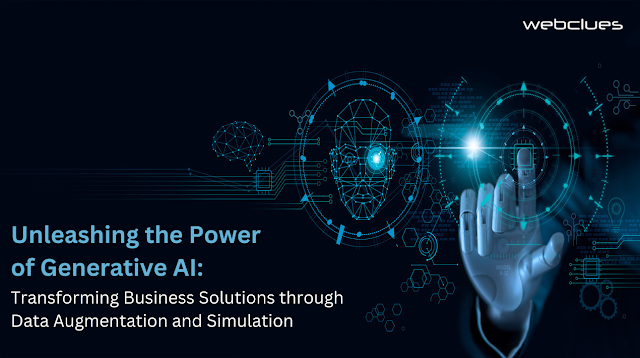GenAI, at its core, refers to a class of algorithms that generate new, realistic data samples based on the patterns and structures inherent in the training data. Unlike discriminative models that learn to distinguish between different classes, generative models learn the underlying distribution of the data, enabling them to generate novel samples that share similar characteristics. This capability is particularly advantageous in scenarios where limited data is available, as GenAI can augment datasets, enriching the learning process and enhancing model performance.
One of the primary ways generative artificial intelligence contributes to solving business problems is through data augmentation. In many industries, acquiring labeled training data for machine learning models can be a costly and time-consuming endeavor. GenAI addresses this challenge by creating synthetic data points that closely resemble the real-world examples present in the training set. By introducing variations and diversity into the dataset, generative models enhance the model's ability to generalize well to unseen instances.
For example, in image recognition tasks, generative adversarial networks (GANs), a popular class of generative models, can create realistic images that expand the diversity of the training set. This is particularly useful in scenarios where a machine learning model needs to recognize objects in varying lighting conditions, angles, or backgrounds. By training on a more comprehensive dataset, the model becomes more robust and reliable in real-world applications.
Moreover, generative AI plays a pivotal role in simulation, a critical aspect of solving complex business problems. Simulation involves creating virtual environments or scenarios to model and analyze the behavior of systems. This can range from simulating financial market conditions to predicting the performance of autonomous vehicles. Generative models contribute by generating synthetic data that closely mimics the intricacies of the real world, allowing businesses to test hypotheses, evaluate strategies, and optimize decision-making processes.
In the realm of autonomous vehicles, for instance, simulation powered by GenAI enables companies to train and test their algorithms in a virtual environment before deploying them on the road. This not only reduces the risks associated with real-world testing but also accelerates the development and refinement of autonomous systems. Simulation becomes a powerful tool for scenario testing, ensuring that AI-driven vehicles can navigate diverse and complex situations safely and efficiently.
The advantages of GenAI extend beyond data augmentation and simulation, influencing areas such as natural language processing, drug discovery, and even content creation. By generating realistic text, molecules, or artistic content, generative models assist in creativity-driven industries, opening up new avenues for innovation and problem-solving.
However, it's crucial to acknowledge the ethical considerations surrounding generative artificial intelligence, especially in areas like deepfakes, where synthesized content can be misused. Striking a balance between innovation and responsible use is essential to harness the full potential of GenAI without compromising ethical standards.
In conclusion, GenAI represents a paradigm shift in how businesses approach problem-solving through machine learning. By leveraging the capabilities of generative models in data augmentation and simulation, organizations can overcome data limitations, enhance model performance, and make informed decisions in complex, dynamic environments. As technology continues to advance, the integration of generative AI into business strategies will undoubtedly play a pivotal role in shaping the future of AI-driven solutions. So why wait anymore? Revolutionize your business strategy with GenAI solutions from WebClues Infotech!


0 Comments